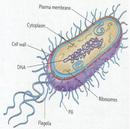K-12 SCIENCE EDUCATION eNEWSLETTER.
Announcing the Institute on Neuroscience (ION) at Yerkes - Summer Research Experience for High School Students
Atlanta-based neuroscientists are offering a unique summer research experience for outstanding high school students interested in neuroscience. This eight week program gives students an opportunity to engage in authentic neuroscience research in a working laboratory at a member institution of the Center for Behavioral Neuroscience (
ION begins with a week-long orientation to introduce basic concepts and research techniques used in neuroscience. This is done in a classroom environment with lots of hands-on/minds-on activities such as a guided sheep brain dissection, neurophysiological demonstrations, and histological procedures. We will also lead general discussions on the ethical conduct of research and laboratory safety, and research mentors will offer descriptions of their research programs at a luncheon. After the orientation, students will be matched with a research mentor based on student preference and mentor needs. Each mentor volunteer is a principal investigator in a working neuroscience laboratory at one of our mentor institutions. Daily mentoring may be provided by a graduate student, postdoctoral fellow, or a principal investigator directly.
Past ION scholars have worked in an incredibly broad variety of research labs as an integral part of ongoing research programs centered around topics including primate social behavior, the genetic basis of mental disorders, insect aggression, and computational neuroscience, to name only a few.
For more information, including how to apply, visit our website at http://www.cbn-atl.org/education/ion.shtml or contact Program Director Chris Goode cgoode@gsu.edu or Program Co-Director Kyle Frantz kfrantz@gsu.edu
-

